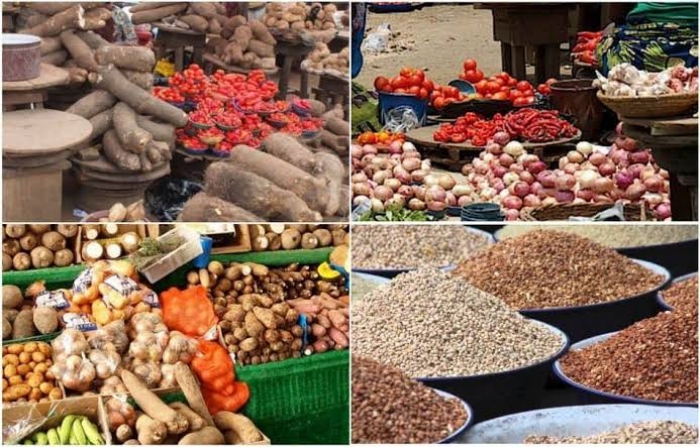In a video on social media, Amarachi makes a stew that replaces pricey tomatoes with more affordable watermelon chunks. “Today we say bye-bye to tomatoes,” she says. As Nigerians adjust to soaring food prices, the video has gone viral.
Tomato prices that fluctuate with the seasons are normal in Nigeria, but the record annual pace of food inflation, which hit 41% in May, is not. Most pinched are the poor. Staples such as beans and maize cost 400% more than they did a year ago, while a 100kg bag of sorghum has more than tripled in price. Since wages have barely moved, the result is a deepening food crisis. Whereas hunger was once concentrated in conflict-ridden areas in northern Nigeria, now it affects poorer households nationwide. Of the 44m people in west Africa and the Sahel who do not get enough to eat, more than half are Nigerian.
Much of the blame should be heaped on the government. A haphazard introduction of new banknotes under the previous administration led to a shortage of legal tender. This caused most hardship in the countryside, where penetration of bank or mobile-money accounts is lowest. With cash scarce, farmers charged middlemen a premium if they used electronic payments, pushing up prices in the markets.
A weakening naira dealt another blow—its 40% fall against the dollar made it the worst-performing currency in the world in the first half of this year. That has pushed up the cost not only of imported foods, but also of seeds and fertiliser. The government’s removal of fuel subsidies, though necessary, further raised the cost of running farming machinery and taking harvests to markets.
Even after the effects of these short-term problems have passed, Nigeria will still face the longer-term challenges posed by climate change. Most crops in Nigeria are rain-fed, which makes them vulnerable to drought. Meanwhile desertification is causing nomadic pastoralists to move their herds onto arable land, where the animals trample or eat crops, leading to conflict with farmers. Terrorism in the north-east, farmer-herder conflict in the north-west and criminality in Nigeria’s “middle belt” have all kept farmers away from their lands in the country’s breadbasket.
To ease the suffering, the UN’s World Food Programme is helping more than 1m of the most vulnerable people a month in northern Nigeria. And the World Bank has provided $800m for a conditional cash-transfer programme targeting 15m households. Though the programme has been launched and then relaunched, it remains stalled by bureaucratic inertia.
A year ago Bola Tinubu, the president, declared a state of emergency for food insecurity. Yet promises that savings from the fuel-subsidy removal would be reinvested into farming have not materialised. A programme to give free fertiliser to farmers to boost production was subverted by politicians, who put their faces on the sacks and gave them to loyal voters.
This week the government announced plans to waive import duties on maize and wheat and to set a recommended retail price. The government itself also plans to import 500,000 tonnes of grain. But so far Tinubu’s administration has been unable to stop prices from soaring. Last year Nigerians were already spending 59% of household incomes on food, a higher share than in any other country. How much harder can they be squeezed?

































































